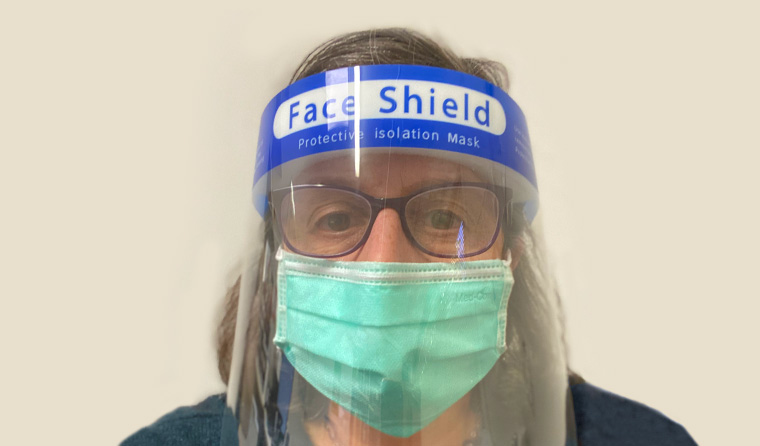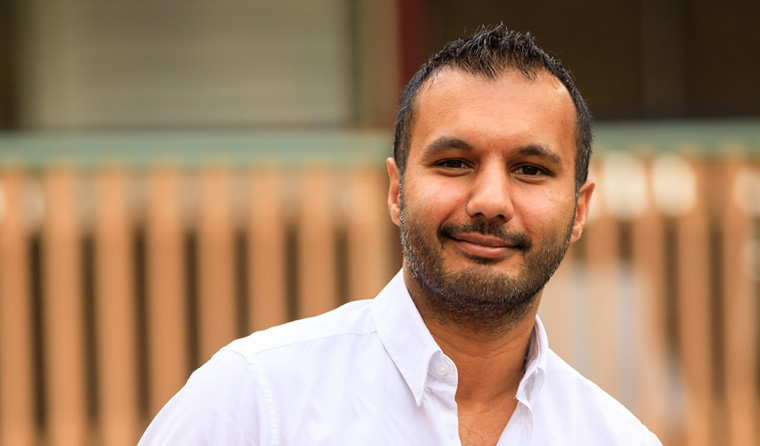Feature
Fear, doubt and hope: GP stories from the aged care frontline
Two GPs describe what it’s like caring for Australia’s most vulnerable during the COVID-19 pandemic.
 Along with the fear of missing a potential diagnosis, there is also the very real possibility of GPs contracting the potentially deadly virus itself.
Along with the fear of missing a potential diagnosis, there is also the very real possibility of GPs contracting the potentially deadly virus itself.
Coronavirus has forced a lot of change in aged care, much of it in an incredibly short space of time.
For Melbourne GP Dr Karen Lewis, that change occurred literally overnight.
‘When restrictions came into place, one facility decided to stop all visitors and close the carpark to prevent anyone entering, other than through the front entrance,’ she told newsGP.
‘It was a good idea, except it would have been nice to be informed beforehand, as it took almost 30 minutes to access the facility – none of my key cards would work and I also needed to find a staff member to exit.’
Dr Lewis says there was a lot of confusion among residential aged care when COVID-19 first arrived on Australian shores, but she has been ‘impressed’ with what she has seen during Victoria’s second wave.
‘As the COVID-19 numbers increased [in March], each facility seemed to have their own idea as to what was the correct thing to do,’ she said.
‘There was a lot of tension within the facilities related to inconsistencies with what PPE [personal protective equipment] was recommended when seeing a resident, as well as regarding who to test, when to test and who does the testing, and what screening should be done before entering a facility.
‘[Now], the protocols are clearer, they have more PPE, and the staff are less fearful.’
This is an experience matched by Dr Khayyam Altaf, who has been seeing patients in more than 10 residential aged care facilities (RACFs) across Melbourne since the pandemic began.
Dr Altaf told newsGP many RACFs were not adequately prepared to handle the pandemic – especially a facility that was the site of one of Australia’s worst outbreaks to date, and has recorded multiple deaths and infections.
‘Initially, on hearing that some of my patients had COVID, it was difficult actually getting through to the staff – and I understand why – but we weren’t quite getting the information I would have liked,’ he said.
‘The GP plays a pivotal role in supporting families and also supporting [any] new staff … involved in looking after the facility, or even if the residents have move to a hospital, and I didn’t feel that the GPs’ knowledge was utilised enough.
‘There was a lot of help we could have provided.’
Dr Altaf, who lost two patients to COVID in that major outbreak, said families are often forgotten among the confusion, but added that GPs can help by acting as the conduit between patients, facilities and loved ones.
‘One of the first things I did when I heard there was an outbreak [in the RACF] was rang the next of kin to let them know that I’m available and they can contact me, and also just to answer any questions they had,’ he said.
‘A lot of them stated that they were basically panicking from the moment they heard the news to the moment they’d spoken to me. [Afterwards] they really felt a lot more relieved as I was able to answer their questions and give them some support and reassurance.
‘We can’t always do much about COVID itself … but if the family’s memory is of chaos, and their loved one dying amongst all of this chaos, that’s not a good lasting memory. It could potentially lead to complaints and just exacerbate the situation.
‘I really thought GPs could have been incorporated in that whole process a lot more. Just to support the family members, because they’re the ones that are going to remember what happened if their loved one did die.’

Dr Karen Lewis says there was a lot of initial confusion in residential aged care when COVID-19 hit, but she has been ‘impressed’ with what she has seen during Victoria’s second wave.
Dr Lewis has so far been fortunate to not experience an outbreak at any of the facilities she visits, but her clinical practice has still been significantly affected by the pandemic.
‘There is still some discrepancy as to whether a GP can do a face-to-face consultation – with a couple of facilities essentially banning these – and some other facilities surprised that I have chosen not to see my residents face-to-face, unless their condition cannot be safely managed via telehealth,’ she said.
‘RACF telehealth has a number of challenges, including a further burden on the nurse’s time to spend visiting each resident with me, plus accessing their charts. Also trying to communicate with a deaf or demented patient or a patient with severe physical disabilities is very difficult via telehealth.
‘Another aspect is missing what the patient might share with you when you are one-on-one with them, rather than having a third party listening in on the consultation.
‘I am also concerned by what I might be failing to diagnose by not seeing my patients face-to-face. I recall a quote from a number of years ago: “More is missed by not looking than not knowing”.’
Along with the fear of missing a potential diagnosis, there is also the very real possibility of contracting the potentially deadly virus itself. As with any highly infectious disease, this concern is not restricted to just personal health.
‘To be honest, I don’t have any medical conditions, but I’ve got three little ones at home. So I don’t have a fear of catching the virus that much to be honest – my fear is spreading it,’ Dr Altaf said.
‘[But] I’m probably being optimistic, because there’s a lot of information out there that we don’t hear about, which is the lasting damage to individuals.
‘We hear lots about the deaths and the total numbers. We don’t hear about what’s happening to people who have been infected and recovered, but they’ve got lots of ongoing impairments.’

Dr Khayyam Altaf, who lost two patients to COVID in that major outbreak, said families are often forgotten among the confusion.
But while the coronavirus pandemic has brought with it many dark clouds and lots of worries, it has, according to Dr Altaf, produced a few silver linings as well.
‘We’re a lot more supportive,’ he said. ‘Everyone’s kind of grouped together. The nursing staff have been really good and everyone’s been very understanding of each other.
‘We’ve all become a little bit closer, even though we’re a bit further away from each other.’
Dr Altef is also optimistic that the collective experiences will help improve RACF infection control protocols in general, and prove to be a catalyst for them receiving additional support.
‘These poor facilities, they’re just not supported at all,’ he said. ‘They get a letter from public health with some very, very vague recommendations, and that’s it. So I’m hoping that the support they get is going to increase.
‘There are a lot of other conditions, like flu, which … [cause] a lot of people to die every year. What I’m hoping is that this will make everyone realise that it’s not just COVID that’s dangerous.’
Dr Lewis’ concerns are likewise not limited to COVID; but she is also hopeful of a brighter future.
‘I worry about the mental state of many of my residents. When I had the opportunity to visit face-to-face, the first thing a number of my patients would say to me is, “I’m lonely”,’” she said.
‘I look forward to the day when the COVID-19 restrictions have eased, and I can safely enter an RACF, spend time with my patients, and provide the service they deserve.’
Log in below to join the conversation.
aged care coronavirus COVID-19 general practice
newsGP weekly poll
Which of the following areas are you more likely to discuss during a routine consultation?